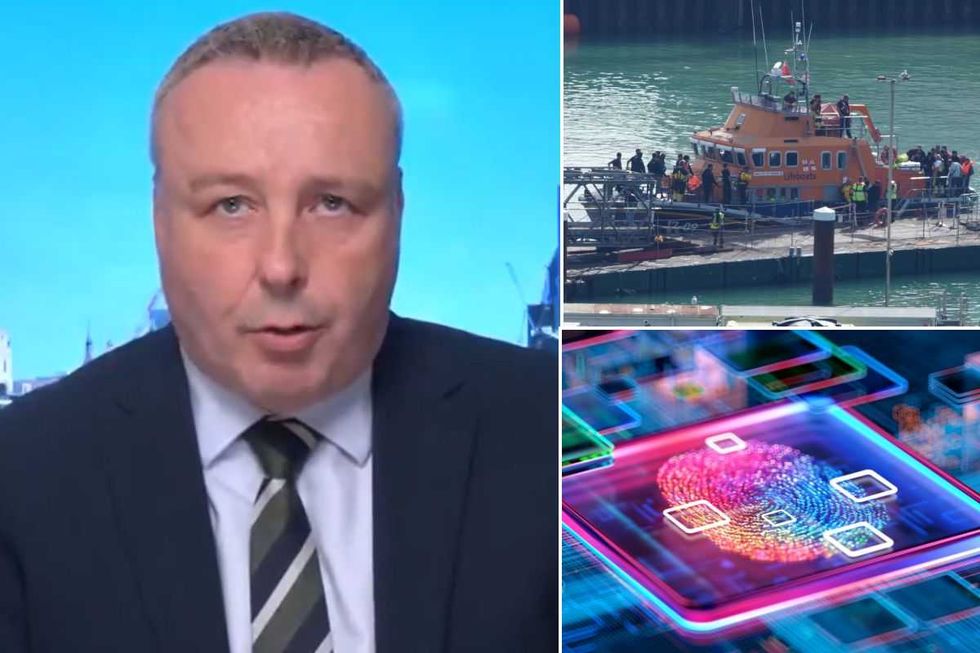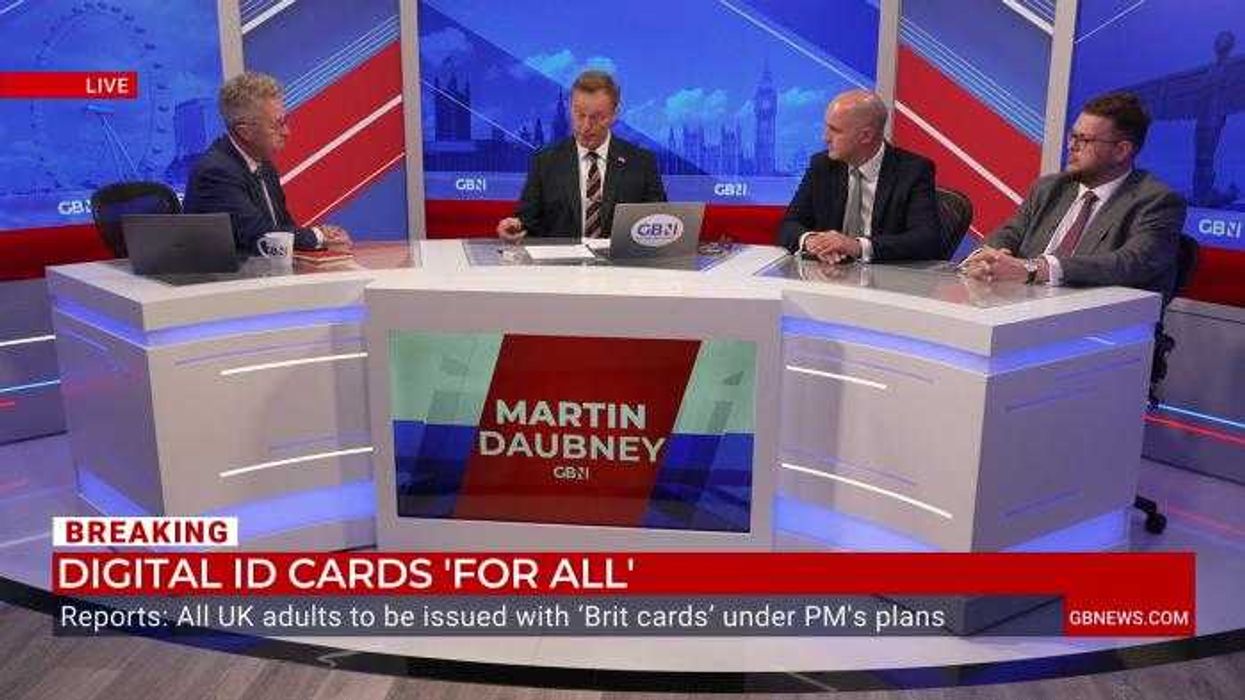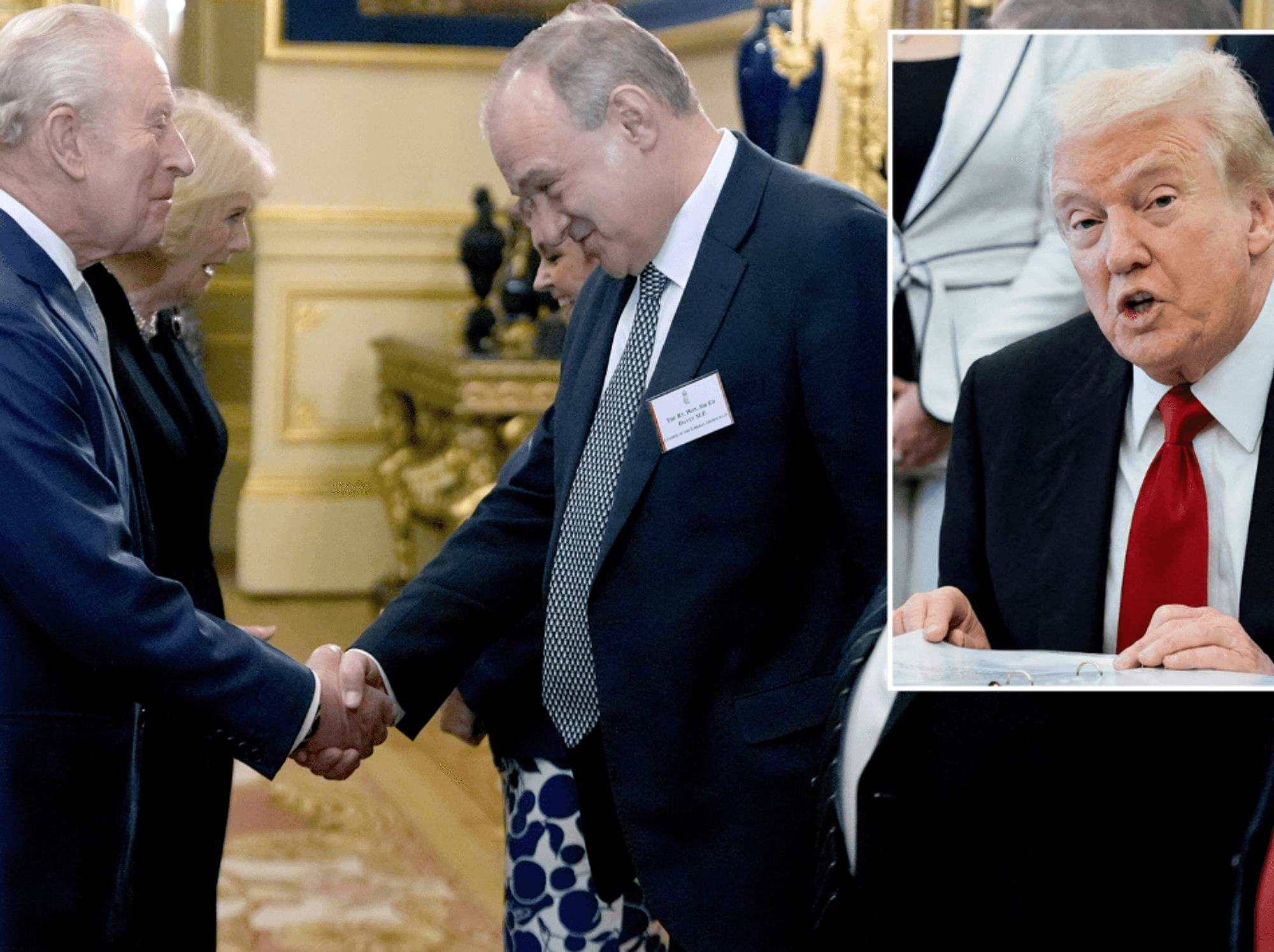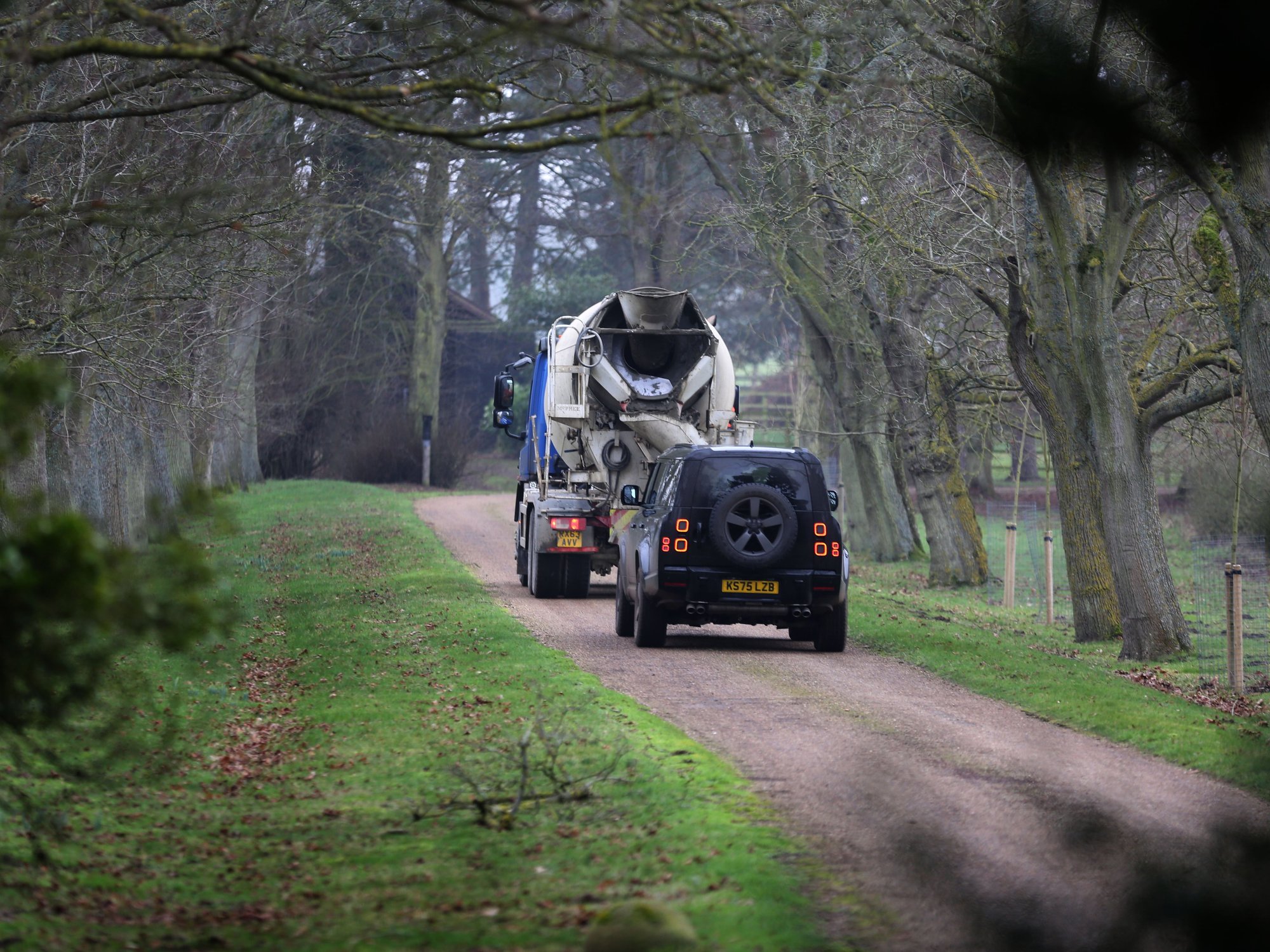Mark White's Migration Monitor: Digital ID won't stop small boat surge - and fresh wave is coming in just hours

GB News Home & Security Editor Mark White shares his thoughts on whether the Prime Minister's digital ID plan will stop the crisis in the Channel
Don't Miss
Most Read
Latest
As I sit down to write this week's Migration Monitor, people smugglers on the other side of the English Channel are moving their boats and migrants into locations to prepare for a break in the weather.
As regular readers of this weekly update are more than aware, we've had some very unpredictable conditions in the Channel over the last couple of months.
A time of year, when we should be seeing long spells of flat-calm conditions, has instead been filled with long spells of windy weather, making it impossible for the migrant dinghies to cross to the UK.
That has led to a change in the pattern of illegal arrivals.
Instead of a regular summer drumbeat of two or three hundred small boat migrants, we're seeing a week or more of nothing, then a huge surge of a thousand or more in a single day.
This weekend is set to follow that pattern - and then some.
We should be in for a few days of good weather, allowing for as many as 2,000 to make the crossing.
If that happens, we'll be on a total of 34,000 illegal arrivals so far this year.
That will take us to within a couple of thousand of the total number of Channel migrants who made the crossing in the whole of last year.
Passing last year's total with some three months of this year still to run, would be an absolute disaster for Sir Keir Starmer's 'smash the gangs' policy.
Although Labour kicked off their time in office with a firm focus on going after the criminal gangs, the lack of any progress in reducing the numbers crossing has forced them to look for other potential solutions.

Mark White shares his thoughts on the new wave of arrivals as the PM prepares to unveil his digital ID plan
|PA/GETTY/GB NEWS
The previous Government's Rwanda deterrent was scrapped on Sir Keir's first day in office.
Instead, we have the so called 'one-in-one-out deal' with France, which is nothing of the sort.
By close of play on Thursday, a total of seven migrants had been flown back to France.
It's a scheme that, initially at least, is operating at a glacial pace, mainly because of repeated attempts by human rights lawyers to appeal each removal decision.
The Home Office says the first returns are a "proof of concept" and will pave the way for officials to ramp up removals over time.
But for the moment at least, it seems hard to imagine when on earth that's likely to be.
This scheme was only ever expected to be very modest at the start, with just 50 migrants a week slated for return to France.
Each day, around 10 migrants were expected to be removed on Air France scheduled flights to Paris.
But almost two months after the partial returns deal was brought into operation, a handful of small boat migrants have found themselves back on the other side of the Channel.
In that same time frame, around 6,000 migrants have made the illegal crossing.
By the end of this weekend, that's likely to be around 8,000.
For Sir Keir Starmer and his ministers, the optics are terrible.
And so, with no discernible progress in tackling the small boats crisis, the Prime Minister has to decided to reach for the nuclear option.
The 'Brit Card' might seem innocuous enough, but it's likely to be fiercely resisted by many, including civil liberties groups.
Sir Keir clearly believes the public mood has changed since Tony Blair tried and failed to introduce ID cards in the early 2000s.
He's convinced the cards, which will have to be carried by every adult worker in the UK, will be a key weapon in combating those living and working here illegally.
I don't agree with the Prime Minister on a number of fundamental assertions here.
I think the ID cards will make no difference whatsoever to the numbers crossing the Channel.
The vast majority of small boat arrivals don't want to disappear off into the illegal economy.
They want to enter the system and win the right to British citizenship.
Yes, of course, there are large numbers who will try to work illegally while awaiting that decision.
But they will just seek work through unscrupulous employers, who are happy to pay them cash-in-hand and won't give two-hoots whether they have an ID card.
The claim that the cards will allow immigration enforcement officers to ascertain whether someone is working illegally is also pretty weak.
I've been on many immigration raids. Those officers have multiple ways of being able to check whether the foreign national they've detained has the right to be in the country, or work.
And I think the suggestion that the country is now in a different place on the ID card debate is also wrong.
In the more than two decades since ID cards were first proposed, I'd suggest that many in the country are far more suspicious and less trusting of those in authority.
The overzealous approach to some of the restrictions in place during the Covid pandemic raised more than a few concerns about whether, in times of crisis, Government can be trusted not to overstep.
And in the years since, the increasingly fractious debate over immigration, and claims of a two-tier justice system, has only cemented those suspicions amongst many.
As they gear up for their annual conference, expect Labour to hammer home just how vital a national ID card is in the fight against illegal migration.
I think they'll find it much tougher to convince the country that this is the solution.
Have a great weekend. I fear a trip or two to Dover is on the cards for me in the coming days.











